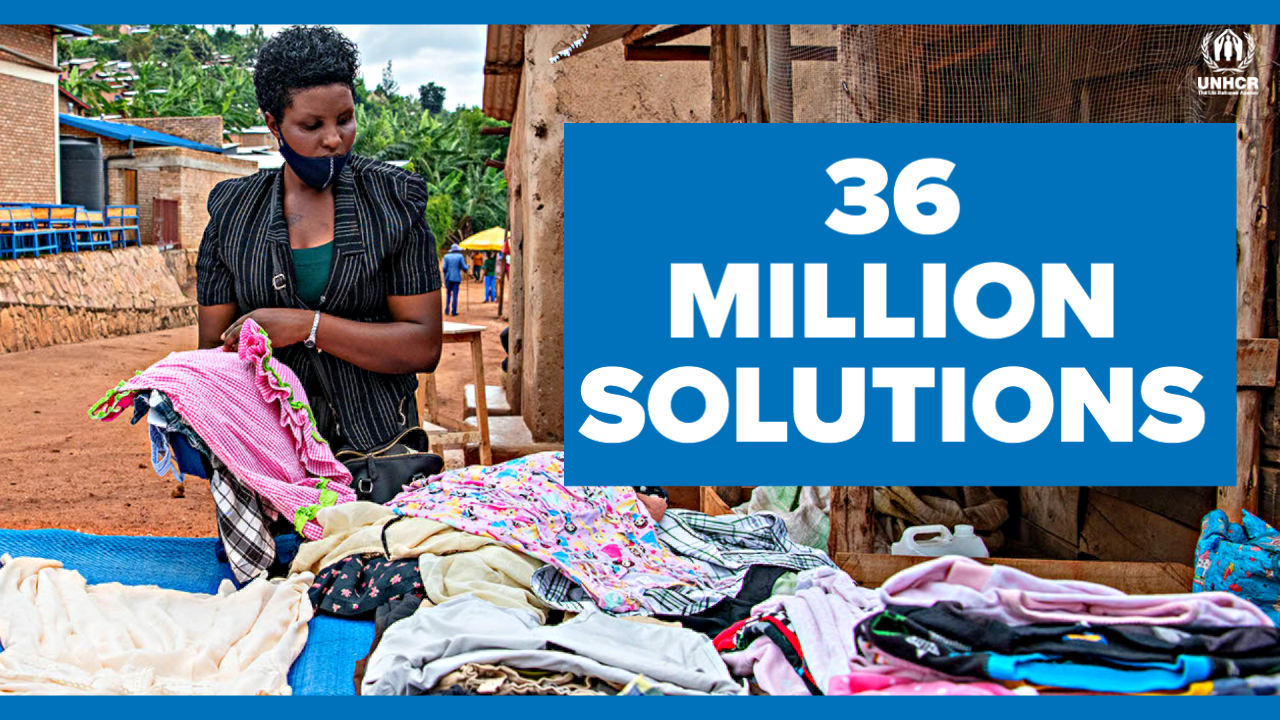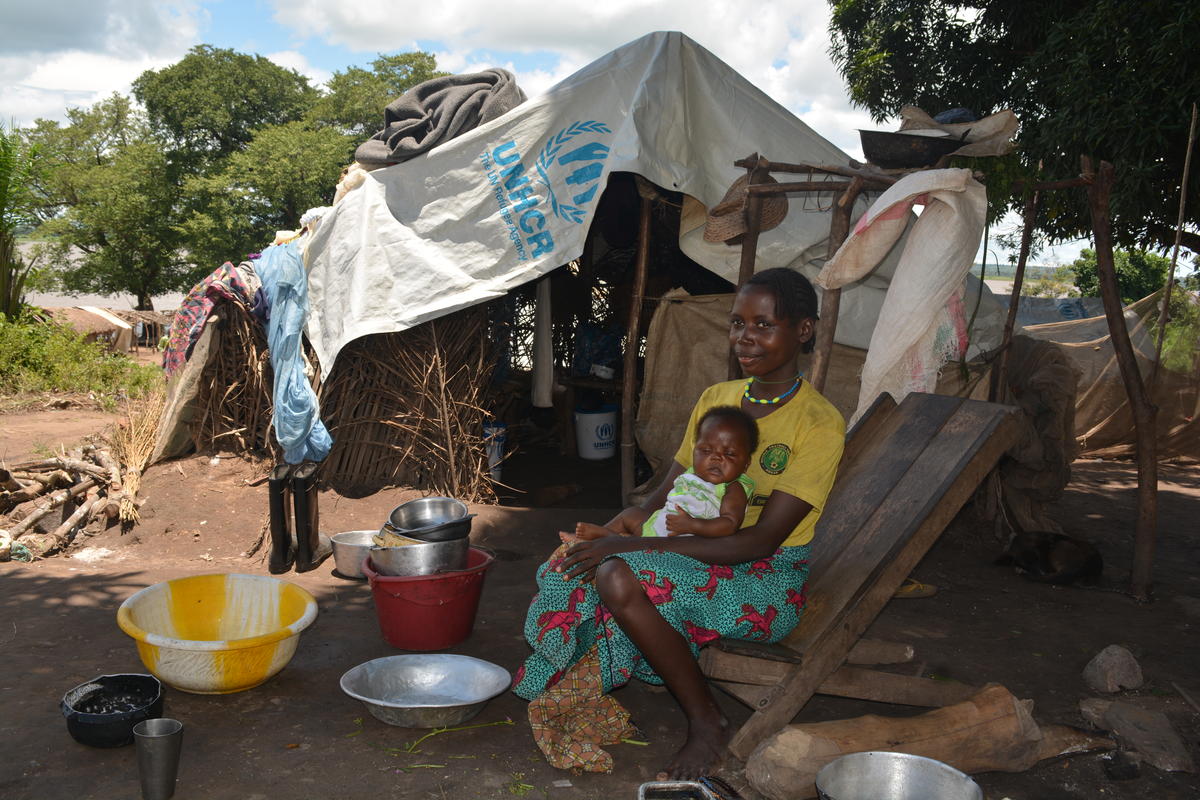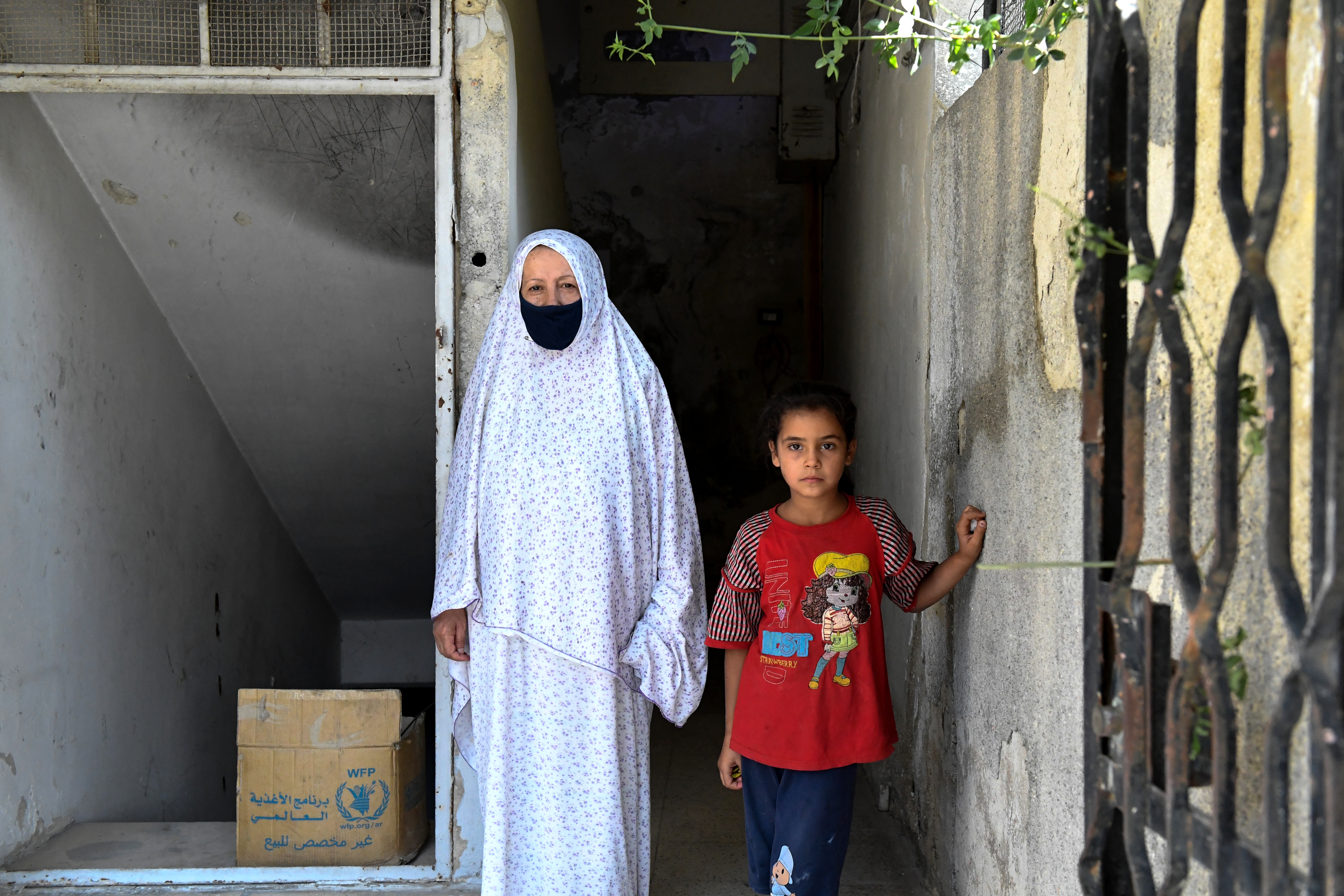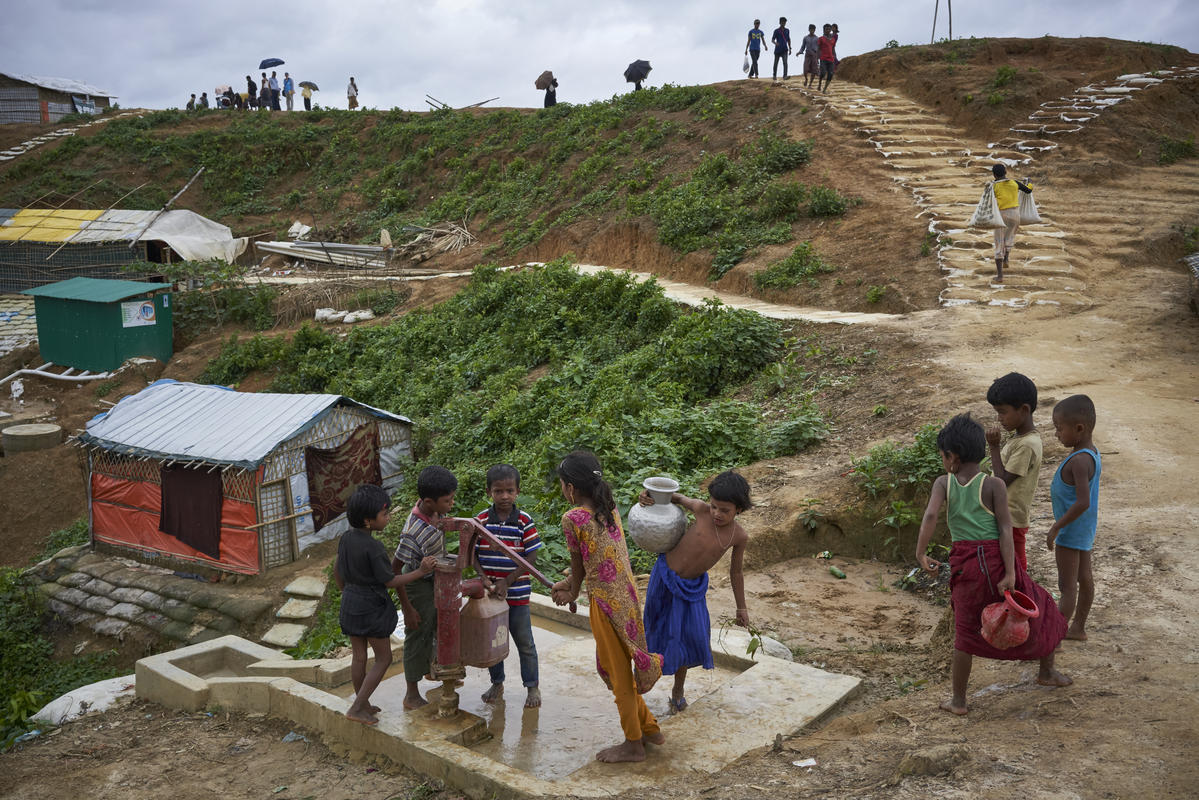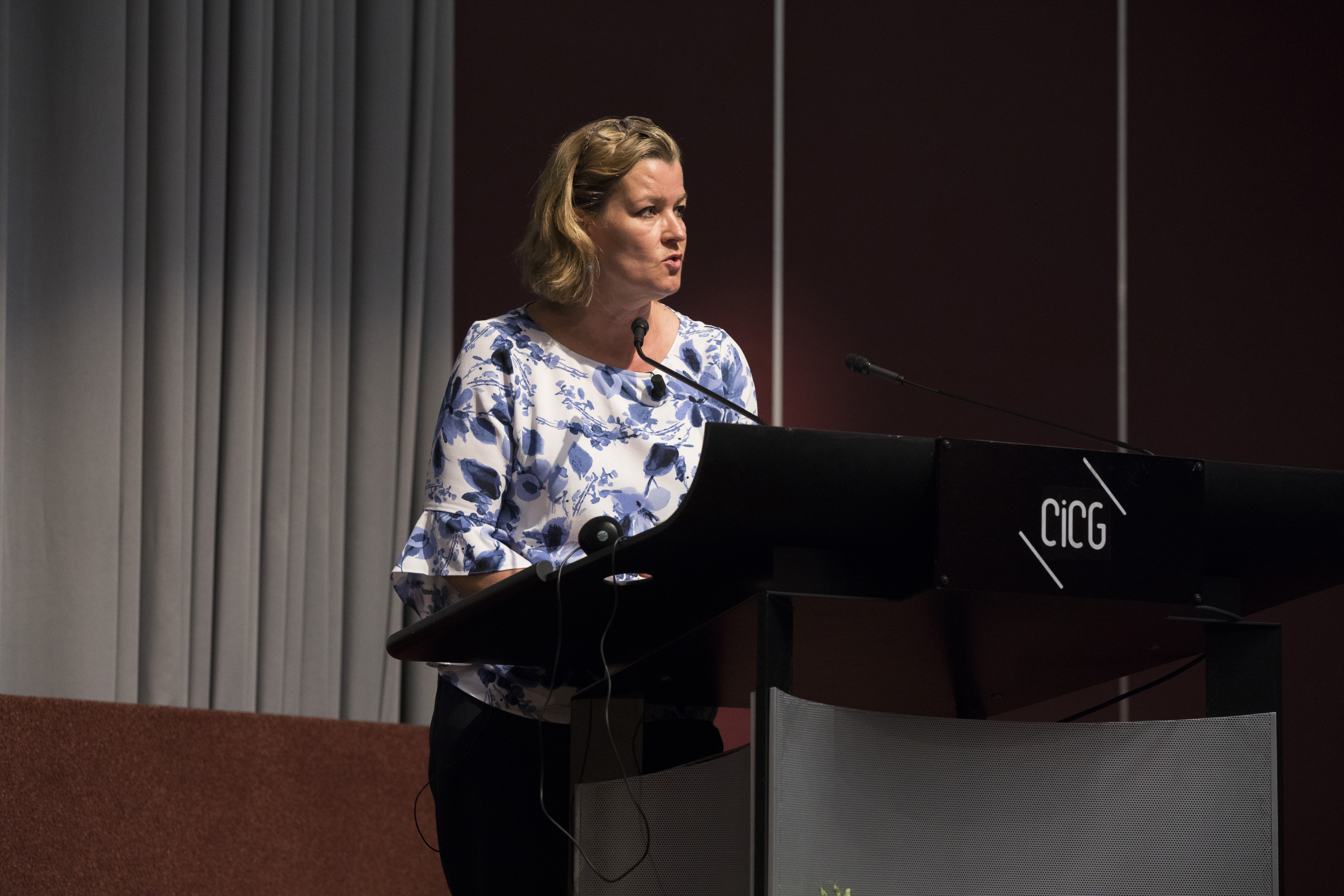Lubbers calls for closer partnership with NGOs to face new challenges
Lubbers calls for closer partnership with NGOs to face new challenges

GENEVA, September 25 (UNHCR) - UN refugee agency chief Ruud Lubbers today opened an annual meeting with non-governmental organisations (NGOs) by calling for closer partnerships in the face of new challenges.
"There are now fewer persons of concern to UNHCR, but the job has become more difficult," said the High Commissioner as he kicked off a three-day meeting between the agency and NGOs - known as Pre-ExCom - in Geneva on Wednesday.
Addressing an audience of some 200 delegates from 160 NGOs and international organisations, Lubbers explained that while the number of persons of concern to UNHCR has dropped from 21.8 million to 19.8 million, attitudes toward refugees and asylum seekers had in many places grown harsher.
"But together we can do the job," he assured them.
"It is an evolving effort on both sides," said Lubbers, calling for closer partnerships between UNHCR and NGOs in the field and when working with governments. He noted that small NGOs in emerging countries need more support as they play an important part in building a vibrant civil society.
"The beauty of our partnership is that it is a dynamic process," he said, acknowledging that NGOs should be critical and alert UNHCR on how it can improve its programmes. "But at the same time," he reminded them, "we're in the same ballgame, and that keeps it lively."
Pre-ExCom offers "invaluable input" to ExCom, added the High Commissioner, referring to UNHCR's 61-member governing body, the Executive Committee, scheduled to meet in Geneva from September 30 to October 4.
One of the issues up for review at this year's Pre-ExCom consultations is the Agenda for Protection, the first comprehensive framework for global refugee policy in five decades, combining clear goals and objectives with suggested activities to strengthen refugee protection. It is the result of UNHCR's exhaustive two-year Global Consultations process.
"For UNHCR, the Agenda will serve as a platform on which to build our protection strategies and interventions, region by region, even down to the country level," said Erika Feller, head of the agency's Department of International Protection, in a separate Pre-ExCom session Wednesday. "But it is not a blueprint as such, rather a framework containing the broad lines, general directions and 'yardstick' activities, to be adjusted office by office to the exigencies on the ground."
She added, "The Agenda should help both of us - that is, UNHCR and the NGO community - to engage governments and to look for improvements."
Lubbers elaborated, "Three themes keep coming up - do protection better, more burden-sharing and effective durable solutions."
But in view of current challenges, he noted, "The 1951 Convention itself doesn't suffice. We need additional tools to achieve more burden-sharing and durable solutions."
These additional tools, or "Convention Plus", as Lubbers calls them, could mean revising a comprehensive plan of action to allow for emergency situations. Feller picked up on this in her speech, saying that UNHCR was looking at similar plans to try and find solutions for some of the world's most protracted refugee situations.
As part of "Convention Plus", Lubbers also proposed focusing more development assistance on host countries with large refugee populations. "They should focus on making the refugees more productive. Empower them through self-reliance activities," he said, pointing to the Zambia Initiative as a case in point.
Lastly, he said, in a post-conflict scenario, UNHCR has a role to play in repatriation and reintegration. "Reintegration and reconstruction will need additional, special agreements to realise.... Where repatriation is not possible, we need special agreements to resettle refugees. Countries must come forward."
In the process of getting governments to endorse this idea of "Convention Plus", Lubbers called for NGOs to play their part by providing expertise and advice to UNHCR's Executive Committee.
On top of this year's refugee agenda, the High Commissioner also unveiled "a more practical, less theoretical approach" to the issue of internally displaced persons (IDPs). He told the Pre-ExCom audience that UNHCR is clarifying which IDPs are of concern to the agency, and highlighted the special programmes available to help them. He invited their comments in this process.
Addressing the NGOs after Lubbers, UNHCR's Feller reiterated the agency's core mandate by pointing to efforts made to reinforce its protection activities around the world, including 75 special deployments so far in 2002. She stressed that improving the refugee agency's protection performance remained an extremely high priority despite UNHCR being "severely hampered by financial restraints".

